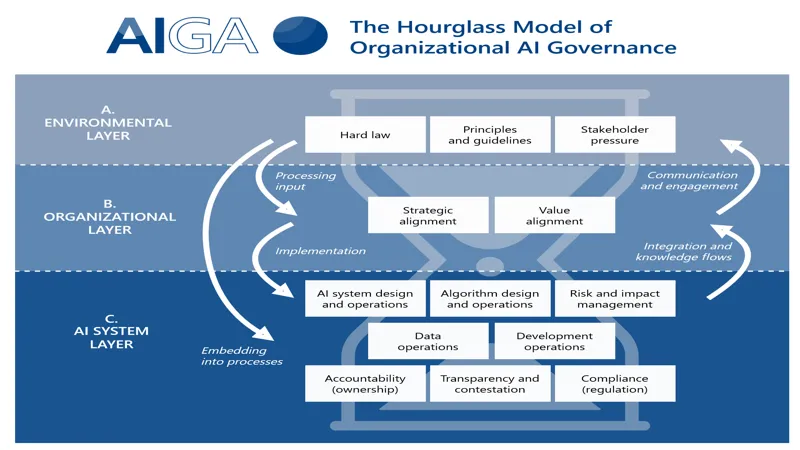As the world stands on the brink of a technological revolution, the rapid advancement of artificial intelligence is sparking urgent debates about its governance and implications. In a striking address following the AI Action Summit in Paris, Anthropic CEO Dario Amodei issued a stark warning: within just two years, AI could achieve the collective intelligence of “a country of geniuses.” This prediction not only underscores the accelerating pace of AI development but also highlights the pressing need for democratic societies to lead in this arena, ensuring that authoritarian regimes do not leverage AI for military supremacy. Amodei’s insights challenge us to confront the complexities of AI regulation amidst geopolitical tensions and economic disruptions, setting the stage for a critical examination of our preparedness to manage these unprecedented advancements.
| Key Topic | Details |
|---|---|
| AI Predictions | AI will match the intelligence of ‘a country of geniuses’ by 2026 or 2027. |
| Critique of AI Action Summit | Dario Amodei described the summit as a ‘missed opportunity’ for AI governance. |
| Global Competition | Democratic and authoritarian nations are competing for AI development dominance. |
| Governance Concerns | Amodei stressed the need for democratic societies to lead in AI. |
| Supply Chain Vulnerabilities | Concerns include chip supply chains, semiconductor manufacturing, and cybersecurity. |
| International Regulation Challenges | U.S. Vice President JD Vance rejected European regulatory proposals, leading to disagreements. |
| Transparency Advocacy | Anthropic launched an Economic Index to track AI’s impact on labor markets. |
| Key Issues Addressed | 1. Democratic leadership in AI 2. Managing security risks 3. Preparing for economic disruption |
| Urgency of Governance | Current regulatory frameworks may be inadequate for future AI systems by 2027. |
| Need for Swift Responses | Governments must match AI development pace with regulatory measures. |
| Balancing Opportunities and Risks | The tech industry and governments face challenges in balancing AI’s potential and risks. |
Understanding Artificial Intelligence and Its Future
Artificial intelligence, or AI, is a special kind of computer technology that can think and learn like humans. According to Dario Amodei, the CEO of Anthropic, AI is developing so quickly that it might soon match the intelligence of a whole country filled with geniuses. This means that by the years 2026 or 2027, AI could become super smart, which raises important questions about how we will use it responsibly.
As AI grows more powerful, we need to think about how it will affect our lives. It could change everything from how we work to how we stay safe. This is why leaders around the world, like those at the recent AI Action Summit in Paris, must work together to create rules for AI. If we don’t, we might face problems we aren’t ready for.
Frequently Asked Questions
What did Dario Amodei say about AI’s development timeline?
Dario Amodei predicts that artificial intelligence will reach genius-level capabilities by 2026 or 2027, emphasizing the urgent need for effective governance.
Why was the AI Action Summit in Paris criticized?
Amodei criticized the Paris summit as a ‘missed opportunity’ for international cooperation on AI governance, highlighting differing approaches among nations.
What concerns did Amodei express about AI competition?
Amodei warned about the competition between democratic and authoritarian nations in AI development, stressing the need for democratic leadership to prevent military dominance.
How is Anthropic addressing AI’s impact on jobs?
Anthropic launched an Economic Index to track the effects of AI on labor markets, aiming for transparency in AI development unlike its more secretive competitors.
What are the main issues highlighted by Amodei regarding AI?
Amodei focused on three main issues: maintaining democratic leadership in AI, managing security risks, and preparing for economic disruption caused by AI.
Why do governments need to act quickly on AI governance?
Governments must establish effective regulations before AI capabilities exceed current governance structures, as the pace of AI development is accelerating rapidly.
What was the outcome of the Paris summit regarding AI commitments?
The U.S. and U.K. refused to sign the summit commitments, revealing significant disagreements on AI regulation and governance among international leaders.
Summary
Artificial intelligence (AI) is expected to reach genius-level intelligence by 2026 or 2027, according to Dario Amodei, CEO of Anthropic. He criticized the recent AI Action Summit in Paris as a missed opportunity for global AI governance, warning that democratic nations must lead in AI development to prevent authoritarian misuse. The summit highlighted disagreements on AI regulation, with the U.S. and U.K. rejecting European proposals, raising concerns about security and economic impacts. Amodei stressed the need for urgent and effective international controls to balance the benefits and risks of this rapidly advancing technology.
